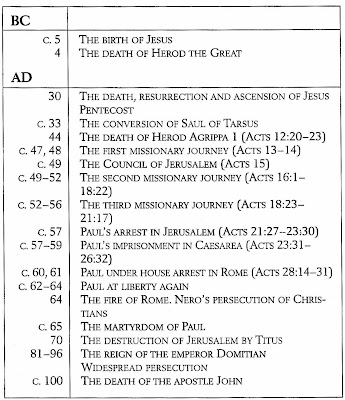 The human state of consciousness prevails today as one part of the human metaphysic that is desired, by many, to alter in some form or another. Many times this altered state of consciousness is brought about by drug intoxication, whether it is through an opiate, depressant, hallucinogen or as is likely among many—cannabis. Sometimes, as in mind wanderings, the alterations seem involuntarily or at the very least—innocent. Being hypnotized offers the willing distorted views of reality through altered states of consciousness.
The human state of consciousness prevails today as one part of the human metaphysic that is desired, by many, to alter in some form or another. Many times this altered state of consciousness is brought about by drug intoxication, whether it is through an opiate, depressant, hallucinogen or as is likely among many—cannabis. Sometimes, as in mind wanderings, the alterations seem involuntarily or at the very least—innocent. Being hypnotized offers the willing distorted views of reality through altered states of consciousness.
Humans seem fixated upon altering their states of consciousness. This may be because many are dissatisfied with the present one and therefore seek an alternate experience. Yet, at other times we simply fail to focus upon the task before us.
This brings us to what consciousness is. What is consciousness? Of course the answer may vary and even be more copious depending upon who answers. However, consciousness, in a basic sense, is a person’s present awareness of outward and inward stimuli. For example, when a person feels the need to do a certain thing, they are conscious of some stimuli that transmit the need or the emotion.
Intentional or voluntary altered states of consciousness are regularly brought on by drug intoxication. The term drug should denote any substance that alters the state of consciousness. Thus, alcohol can be presumed to be a drug just as some stimulant or hallucinogenic drug, e.g. Cocaine, LSD. Consequently modern society places lower emphasis on drugs like alcohol and nicotine, yet, ironically they herald the woes of drugs like marijuana, cocaine, and heroin. It can easily be argued that “of all theses substances nicotine is the most harmful, because it is responsible for about 360,000 deaths per year.”
Typically psychoactive drugs (drugs that affect behavior, mood, and/or consciousness) are illegal and can be very dangerous. However, just because a drug is illegal does not necessary indicate to us, properly, the risk associated with the drug. Most of these drugs create dependence upon the drug which creates the “snow ball” effect wherein not only is an individual’s health in jeopardy but his/her finances and possibly family members.
Psychotropic drugs, like those given for depression or anxiety are very addictive as well. We should be careful not to underestimate a drug just because one is legal and the other is not. Our society has established an apparent double standard in the sense of drugs and medicine. Alcohol and nicotine kill humans each and every year. In fact, alcohol is involved in a high percentage of fatal or non-fatal traffic accidents.
In mind wanderings individuals often find themselves abruptly awakening in the midst of a conversation or event. In 1997 C.A. Ross held a survey that reported 80% of adults surveyed have had similar experiences of mind wanderings. This is sometimes called dissociation. An older idiomatic expression of this experience could be “daydreaming” This, normally, is a result of a mind that is uninterested or meditating on some fanciful reverie.
Sigmund Freud would probably assert that the as real as human conscious is, so is the reality of the unconscious. His theories in this area have undergone significant criticism. The unconscious is “memories, impulses, and desires that are not accessible to consciousness.” Freud believed that the unconscious housed repressed memories that have painful connotations. Freud believed these types of unconscious memories surfaced in our dreams, illogical behaviors, peculiar mannerisms, and slips of the tongue.
Many of us have often heard someone slip certain words into a sentence and then hear someone say that the “slip” was the “Freudian slip.” Basically, the Freudian slip is comments or remarks that were not intended to be said, but manifest the repressed impulse. The “Freudian slip” does have some merit and Freud would like to take the credit but an older source—Jesus Christ—tells us that
"The good person out of the good treasure of his heart produces good, and the evil person out of his evil treasure produces evil, for out of the abundance of the heart his mouth speaks." (Luke 6:45 ESV)
Personally, states of consciousness are intriguing because a persons desire to alter his/her state can typically indicate a dissatisfaction with life. This is not the case every time yet many persons are simply not happy with their life. Thus, they seek a method or a way to escape their present awareness or consciousness. This assumption cannot be applied systemically but in certain areas, e.g. psychoactive drugs, it is plausible. Although they are distinct, drug dependence and drug abuse are examples of persons whose life has lost true satisfaction.
“The prevalence of illegal substance use and abuse increased substantially in the last four decades. People who were teenagers in the 1960’s and more recent generations are much more likely to have tried illegal substances such as marijuana, cocaine, or heroin at some time in their lives than their parents or grandparents.” Sadly, as we can see, the probability of using illegal drugs continues to escalate through time.
Does the moral decline of a civilization have anything to do with drug abuse and drug dependency? Why do people desire to alter their state of consciousness to the point where they ignore the consequences of certain psychoactive drugs? Why do people allow themselves to build up a tolerance to psychoactive drugs that require them to spend more, do more, and have unpleasant withdrawals when stopped?
Is this just addiction? Or addiction brought on because of dissatisfaction? Is it something to help cope with the disappointments or calamities of life? I believe it also speaks of the times in which we live, but I believe it is also the inherent dissatisfaction that humanity can acquire with a life away from God. This is generally speaking to the greatest need of man, which is to commune and be in relationship with the Creator. It is the very reason for our existence in the first place. Christian worship of the God of creation, accompanied by faith and sincerity, brings unparalleled joy that no drug can bring.
After the disciples had seen Jesus ascend into the heavens the scriptures record that they worshipped him and returned to Jerusalem “with great joy” (Luke 24:52 KJV). Intentional and focused worship can alter one’s consciousness of despair and trouble to “great joy”. However, the worship must be intentional and it must be focused. As humans we do not worship that in which we place no faith or trust, but we worship that which we do have faith and in which we place our trust—God. Therefore, to worship is to recognize a high source that can intervene in human matters.
Paul’s advice on being anxious (Philippians 4:6 ff.) still has relevant applicability for this generation of hurting and disappointed. In Philippians 4:7 he says that the “the peace of God…transcends all understanding” yet it “will guard your hearts and your minds”. He goes on to tell us to purposely meditate upon “whatever is true, whatever is noble, whatever is right, whatever is pure, whatever is lovely, whatever is admirable”. Essentially we are to think on things praiseworthy. (See Philippians 4:7-8 NIV) We are to meditate on good things, things worthy of praise. Meditation requires purposeful reflection and capturing of the mind.
God calls us to meditate on Him and His word. It is stopping to hear Him speak and for us to listen. It is getting online with God, to restore right relationship between broken humanity and Himself. I have often found myself wondering why a person would do the things that they do. Better yet, why this mannerism or that habit? Next time we see one like that we must also seek to understand the disappointment and the calamity. Then we should let them see Jesus. Show them that the hope and solution He brings is not only wonderful, it never runs out. The solution and the hope was made with them in mind.







